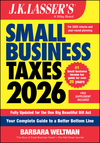Final Regulations on Opportunity Zones
The Tax Cuts and Jobs Act of 2017 created a new type of investment offering special tax breaks. Various locations around the country have been designated as Opportunity Zones (OZs), allowing for these investments. Now the IRS has finalized regulations (T.D. 9889, 12/19/19) to add certainty to this new area of tax law.
Tax breaks
There are three distinct tax breaks for investments in Qualified Opportunity Zones (QOZs):
- Deferral of gain on the sale of property if a reinvestment of proceeds is made in a Qualified Opportunity Fund (QOF) within 180 days of the sale.
- Exclusion of 10% of gain if the fund investment is held at least five years, plus another 5% exclusion if held for at least 7 years. However, deferred gain (to the extent not excluded) must be reported on the earlier of the date of QOF investment is sold or December 31, 2026. An “inclusion event” (described below) is treated the same as a sale.
- Election to exclude all of the gain from appreciation if the QOF investment is held at least 10 years.
What is gain eligible for deferral?
The final regulations define the type of gain that can be deferred through a QOF. In addition to a straight sale of an asset, “gain” includes:
- Section 1231 gains from a pass-through entity—sole proprietorship, partnership, limited liability company, and S corporation—can be deferred without regard to Section 1231 losses.
- Those receiving Schedules K-1 from their pass-through entities start the 180-day reinvestment period on the due date of the entity’s tax return (not including extensions).
- Gain from installment sales can be reinvested when proceeds are received even if the installment sale occurred prior to January 1, 2018 (the effective date of QOZs). At the taxpayer’s election, the 180-day reinvestment period can start to run when each installment payment is received.
Final regulations make it clear that “gain” eligible for deferral does not include gain realized on the sale of an asset to a QOF; it can’t get the tax breaks if reinvested in another QOF.
What is an inclusion event?
An inclusion event is any occurrence that reduces or ends an investor’s investment in a QOF or a distribution of property with a fair market value exceeding the investor’s basis in the QOF. Final regulations list various inclusion events in addition to a straight-out disposition of a QOF interest:
- Termination or liquidation of the QOF (including loss of QOF status due to decertification of the fund as qualified, whether voluntarily or involuntarily).
- Gift of a QOF interest
- Transfer to a spouse incident to divorce
- Partnership distribution of a QOF to the extent that cash or the fair market value exceeds the partner’s outside basis in the QOF
- A QOF investment becomes worthless.
Certain events are not treated as inclusion events. These include the death of the investor (but heirs do not get a stepped-up basis; they recognize the deferred gain no later than 2026) and a contribution of a QOF investment to a partnership.
Recovery property
Tangible depreciable property placed in service after 1980 and before 1987 and depreciable under ACRS.



